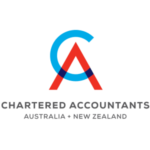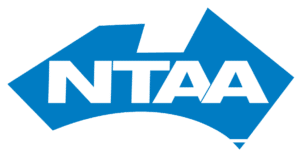This is a pre-election budget for the people with everyone getting a little something to ease cost of living pressures. The 2023-24 surplus has increased to $9.3bn but is expected to decline to a deficit of $28.3bn in 2024-25, driven primarily by the Stage 3 tax cuts.
For small and medium business, there is a little but not a lot – an extension of the $20k instant asset write-off until 30 June 2025 and a $325 rebate to eligible businesses towards 2024-25 energy bills.
For foreign residents, the capital gains tax (CGT) regime will be amended to broaden the type of assets subject to CGT and introduce a modified 365-day principal asset testing period.
Winners from the FY24-25 Federal Budget
Here are the groups set to gain an advantage from Jim Chalmers recent Labor budget.
Every household in Australia will get a $300 energy bill rebate
Households will receive a credit of $300 on their energy bills credited as automatic quarterly installments across 2024-25. In contrast to the Government’s 2022 Energy Bill Relief Fund, this fresh relief scheme for power bills increases the number of qualifying households from five million to over 10 million.
Small businesses
Small business $325 energy rebate
Energy relief will also be provided to eligible small businesses in the form of a $325 rebate.
Around one million small businesses will receive $325 off their energy bills over 2024–25. The support will apply as an automatic quarterly credit to energy bills.
Costing $3.5bn over three years from 2023-24, the measure extends and expands the Energy Bill Relief Fund.
$20K instant asset write off scheme extended
Small businesses, with an aggregated turnover of less than $10 million, will be able to immediately deduct the full cost of eligible depreciating assets costing less than $20,000 that are first used or installed ready for use between 1 July 2023 and 30 June 2025. This measure extends the 2023-24 Budget announcement to the 2024-
25 financial year.
The “immediately deductible” tax deduction allows businesses to claim the asset’s cost in the same year of purchase and use, with a $20,000 threshold for GST- registered businesses and including GST for non-registered ones.
This deduction is per asset, applicable to assets under depreciation provisions. Assets over $20,000 can be placed in a depreciation pool.
The provision preventing re-entry into the simplified depreciation regime is suspended until June 30, 2025. Proposed amendments aim to raise the threshold to $30,000 and extend eligibility to medium entities.
Renewable energy businesses
As part of the Future Made in Australia initiative, the Government will provide an estimated $19.7 billion over ten years from 2024–25 to accelerate investment in Future Made in Australia priority industries including renewable hydrogen, green metals, low carbon liquid fuels, refining and processing of critical minerals and manufacturing of clean energy technologies including in solar and battery supply chains.
The government proposes two tax incentives from 2027-28 to 2040-41:
- The Critical Minerals Production Tax Incentive and the Hydrogen Production Tax Incentive. The former offers 10% of processing and refining costs for critical minerals over 10 years.
- The latter provides $2 per kilogram of renewable hydrogen produced over the same period. Funding measures include investments in critical mineral processing facilities, hydrogen projects, renewable energy, innovation, clean energy manufacturing, low carbon liquid fuels, and green metals industries.
Tax Payers
As previously announced, the Government has legislated permanent tax cuts for all Australian taxpayers from 1 July 2024.
Relative to the previous Stage 3 plan, the redesigned cuts broaden the benefits of the tax cut by focusing on individuals with taxable income below $150,000.
This table outlines the tax rates applied to different income brackets.
| Taxable Income | Tax Rate |
|---|---|
| $0 – $18,200 | 0% |
| $18,201 – $45,000 | 16% |
| $45,001 – $135,000 | 30% |
| $135,001 – $190,999 | 37% |
| $190,001 and above | 45% |
Those with student debt
As previously announced, the Government will cap the HELP indexation rate to be the lower of either the CPI or the Wage Price Index (WPI) with effect from 1 June 2023. The change will apply to all HELP, VET Student Loans, Australian Apprenticeship Support Loans and other student support loan accounts that existed on 1 June 2023.
From June 1, 2023, changes in HELP indexation reduce rates from 7.1% to 3.2% in 2023 and from 4.7% to about 4% in 2024. This addresses a spike in CPI indexation to 7.1% affecting over 3 million Australians with HELP debt. An average debt of $26,500 could see a reduction of around $1,200, subject to legislation passage.
New Parents
As previously announced, from 1 July 2025 superannuation will be paid on Paid Parental Leave payments from 1 July 2025.
Eligible parents will receive an additional payment based on the superannuation guarantee (i.e. 12% of their PPL payments), as a contribution to their superannuation fund.
Currently, superannuation guarantee is not payable on paid parental leave.
In addition to the extension of parental leave to 24 weeks from July 2025 and 26 weeks from July 2026, families will receive an extra payment.
People leaving domestic violence
As previously announced, the Government has committed almost $1bn over 5 years to permanently establish the Leaving Violence Program – so those escaping violence can receive financial support, safety assessments and referrals to support pathways. Those eligible will be able to access up to $5,000 in financial support along with referral services, risk assessments and safety planning.
Those with some medical expenses
The Government will ensure that the cost of medicines remains low by freezing indexation:
- PBS general co-payments to not be indexed between 1 January 2025 and 31 December 2025 (inclusive), with indexation resuming on 1 January 2026
- PBS concessional co-payments to not be indexed between 1 January 2025 and 31 December 2029 (inclusive), with indexation resuming on 1 January 2030
Starting January 1, 2024, the $1 optional discount on patient co-payments for subsidized prescriptions will decrease annually until it reaches zero. Most PBS medicines may cost up to $31.60, or $7.70 with a concession card, with the government covering the remaining cost.
Losers from the FY24-25 Federal Budget
Intro sentence: While many groups will benefit from the most recent budget, there are plenty of groups who may be worse off this year. Find out if you’ll be impacted.
High income earners
Due to revisions to legislated tax cuts, individuals earning over $146,000 will receive smaller cuts than anticipated. While the highest earners will pay $4,529 less in income tax from July, they were expecting a $9,075 reduction.
This results in reduced forecasted benefits compared to the previous federal budget for these taxpayers.
The foreign resident capital gains tax (CGT) regime will be expanded by:
- Clarifying and broadening the types of assets on which foreign residents are subject to CGT
- Amending the point-in-time principal asset test to a 365-day testing period
- Requiring foreign residents disposing of shares and other membership interests exceeding $20 million in value to notify the ATO, prior to the transaction being executed.
Foreign residents are subject to CGT on the sale of taxable Australian property (TAP), ensuring taxation on assets closely linked to Australian land or business activities. Shares or units may be TAP if the taxpayer holds a 10% interest and over 50% of asset value is Australian real property. A new ATO notification process improves compliance. Reforms align with OECD standards and aim to increase revenue by $600 million over five years from 2023–24.
International students and new migrants
The federal government will introduce legislation to cap the number of places for international students. The Education Minister will have the authority to mandate limits on new international student enrollments yearly. Universities seeking to exceed these limits must construct new purpose-built student accommodation. The specifics of the student cap will be decided through consultation with the sector.
The government will cap next year’s permanent migration program at 185,000 places, with 132,200 allocated to skilled individuals. Net overseas migration is expected to halve to 260,000 in 2024-2025. The number of places for international students will be limited, details to be determined with universities. A $25 ballot for working holiday visas will be introduced for applicants from China, Vietnam, and India to streamline processing and manage demand.
Additionally, a program for 3,000 Indian graduates and early-career professionals to live and work in Australia for up to two years will be established, with applicants paying $25 to enter a ballot and $365 for a successful visa.
NDIS recipients and providers
The government achieved its headline surplus partly by saving $14 billion over four years on the National Disability Insurance Scheme (NDIS) compared to previous projections. Additionally, it will invest $84 million over two years to enhance fraud detection capabilities at the NDIS to combat provider exploitation of the scheme and strengthen its integrity.
Sheep farmers
The government fulfilled its pre-election pledge to cease live sheep exports from Australia by allocating $107 million in the federal budget for the industry’s transition, aiming to halt the trade by May 1, 2028. While applauded by animal welfare advocates, farmers generally oppose the ban, arguing for the legitimacy of the industry’s continuation.
People cheating the tax system
Anti-avoidance taskforce – extend the ATO’s Tax Avoidance Taskforce for two years from 1 July 2026. This measure is estimated to increase receipts by $2.4 billion and increase payments by $1.2 billion over the 5 years from 2023–24.
The Tax Avoidance Taskforce has a strong focus on the top 1,100 public and multinational businesses and the top 500 privately owned groups, but also covers all 5,000 high wealth private groups that control net wealth exceeding $50 million and public and multinational businesses outside of the ATO’s justified trust programs.
As of 30 June 2023, the taskforce has assisted the ATO raise $32.7 billion in tax liabilities.
Ensuring your taxes are legitimate and accurate is the most effective strategy to avoid issues with the ATO. Consulting a professional accountant can provide invaluable assistance in navigating tax regulations and optimizing your financial affairs.
For expert guidance and peace of mind, contact MNY Group today. Our team of experienced accountants is here to help you stay compliant and maximize your tax benefits.



